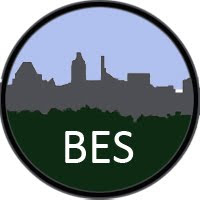Renewal and Diversity
Dear BES Community,
As we begin 2017, we are grateful for the opportunity to clarify our research outlook. We are hard at work developing a new conceptual model, research questions, hypothesis and experimental plan for the 2018 Renewal Proposal. At the January Quarterly meeting, we had some great input from our Hydrology, Biodiversity and Social Science Breakout Groups. Since then, our ideas have been reviewed and insightfully critiqued by an independent Ad Hoc Advisory Committee and the iterative process continues. We look forward to sharing the new conceptual model once it is finalized.
Long-term Climate data was also discussed at the January meeting with a focus on what is needed for Baltimore disaster and all-hazards planning. Thanks go to Kristin Baja, who presented at our meeting and provided information about the status of the All Hazards Management Plan (AHMP). This plan is updated every five years and looks at historical hazards. We also looked at Regional Climate Trends – John Dillow and Bob Shedlock, Climate Trends Analysis in BES – Ellen Woytowitz, Climate data sources – Bernice Rosenzweig, and NEXRAD rainfall data for spatial and temporal patterns and links to models (Jim Smith, presented by Peter Groffman).
In February we welcomed a new co-Investigator, Colin Studds, Ph.D., from the Department of Geography and Environmental Systems at UMBC. Colin has plans for investigating mammals and further research on birds in BES to complement our ongoing research on bird dynamics led by Dr. Charles Nilon.
Looking ahead to our April 26th Quarterly Meeting, we will be exploring ways of increasing diversity in BES. Alan Berkowitz and Bess Caplan have provided the following goals for discussion at our upcoming meeting:
1. Raise awareness within BES community of the importance and challenges of increasing diversity within our community.
2. Help BES make progress towards crafting a visionary and feasible Diversity Plan.
3. Evoke a shared understanding of the roles of diversity in science, and the current landscape of diversity in environmental careers and interventions.
4. Build bridges for collaboration and contribution within BES and between BES and others in the region.
5. Make concrete plans for the future of diversity in BES.
6. Consider producing a short paper about diversity in, of and for BES and the urban social-ecological “workforce.”
We are anticipating a very productive meeting and hope to see you there!
Finally, we are restructuring our social media strategy and want to share the latest details. We hope that these changes will better serve the BES Community and help to raise the profile of the quality research that our project does every day and year after year. We will be archiving the existing Facebook Group and the Education page (BPESL) at the end of March 2017. There will be one BES Facebook page with more varied content appealing to investigators, educators, and artists alike: Baltimore Ecosystem Study – BES. In addition, you can follow us on Twitter @BESlter. Follow us, like our page, comment and discuss! We want to hear your thoughts on what’s happening.
Thank you,
Emma



